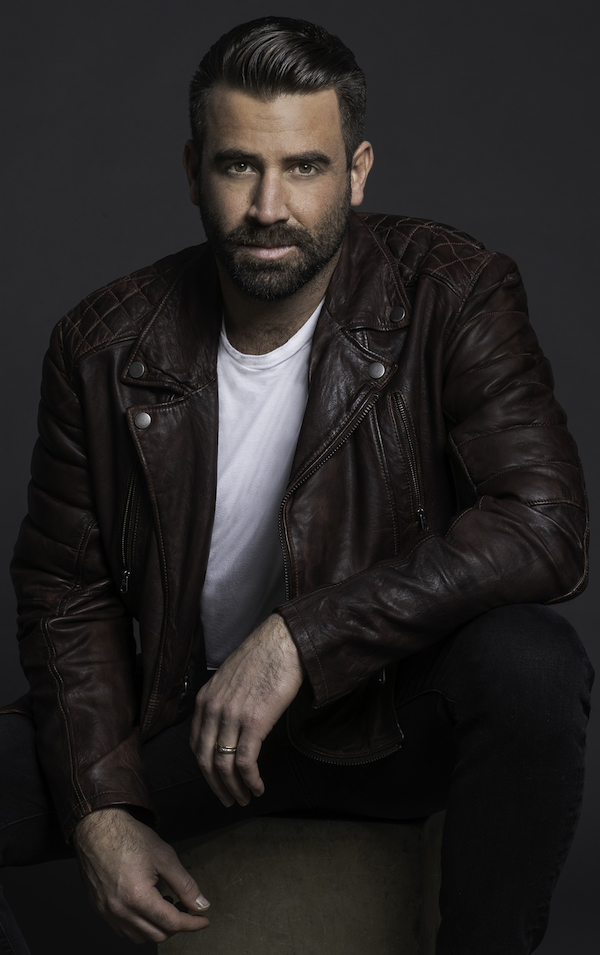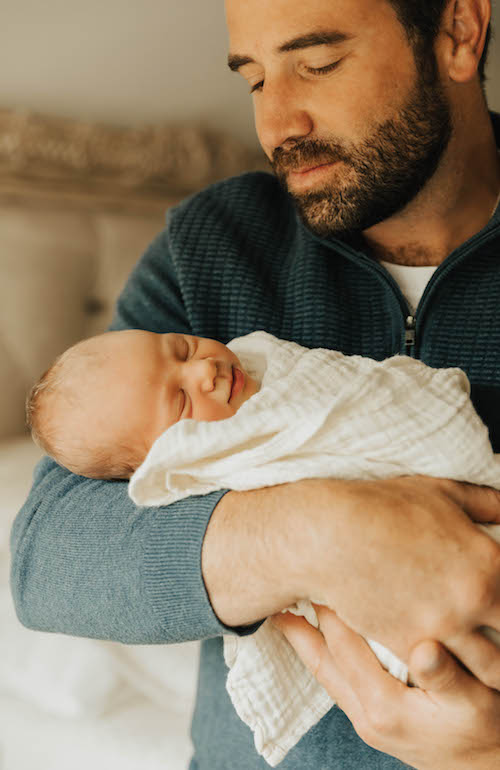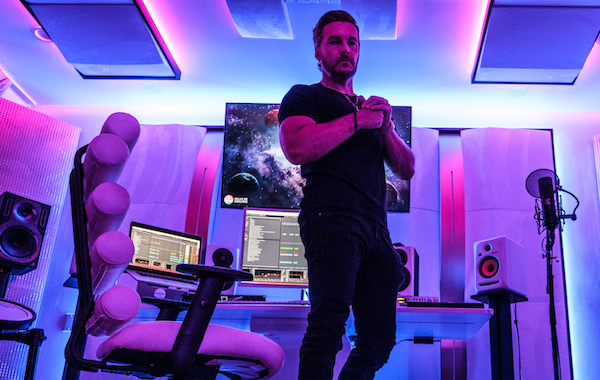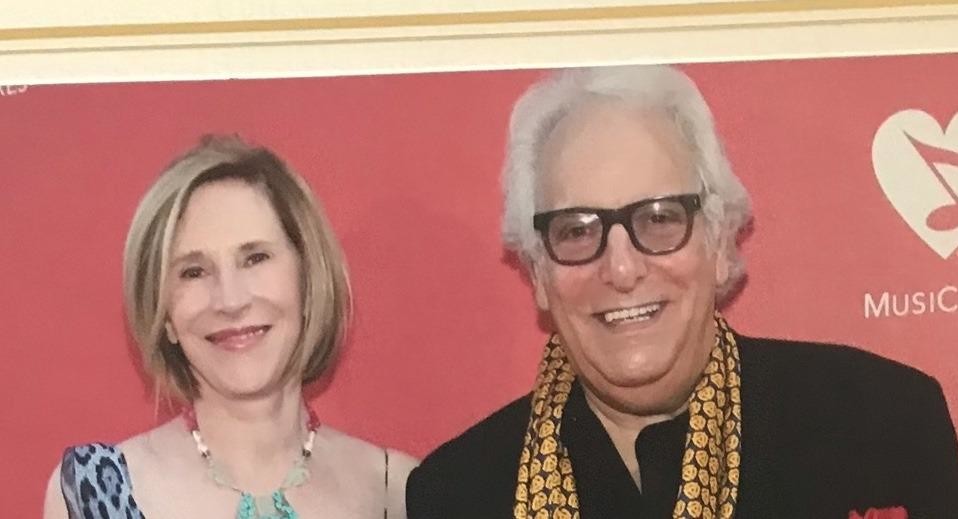The TV personality and recovery advocate has arrived at a place of hope and understanding after coming to terms with his own addiction demons
By Jason Langendorf
Jason Wahler is a TV host, actor and personality who has appeared on Laguna Beach, The Hills and Celebrity Rap Superstar. After struggles with addiction and mental health dating back to his teenage years, Wahler also landed on Celebrity Rehab with Dr. Drew, and has since become a philanthropist and advocate for treatment and the recovery community.
Wahler, 34, has worked extensively with Oakvine Recovery Center (Austin, Texas), Tres Vistas Recovery (San Juan Capistrano, Calif.) and Northbound Treatment (Newport Beach, Calif.), where he met Paul Alexander and Mike Netherton, mentors who were instrumental in his recovery. Wahler also co-chairs the Red Songbird Foundation and serves on the board of the Los Angeles Mission, which shelters more than 500 people, serves 1,500 meals a day and offers a Healthy Living Program that empowers people to move from homelessness to lives of stability and independence.
TreatmentMagazine.com spoke to Wahler about managing both addiction and celebrity, as well as his role in the treatment space.
Q: What can you tell us about where you’re from, growing up and your early influences?
A: I’m a Southern California native, born in Newport Beach at Hoag Hospital, and I grew up in Laguna Beach. I’m the youngest of four kids. I had a very solid [family] foundation and a really good upbringing. Really good mentorship, really good morals and very good values instilled at a very young age.
Q: What put you on your path into television?
A: Growing up, I wanted to be a professional athlete, specifically a baseball player. I dedicated my whole life to that, ever since I was about 3 years old. And then I entered into some trials and tribulations when, at the age of about 16, 17 years old, I went away to boarding school in Provo, Utah. It was actually mutually agreed upon between my parents to kind of get out of Dodge. I was starting to drink too much, wasn’t getting the best of grades, and baseball was no longer my No. 1 priority anymore due to struggling with substance abuse.
Looking back now—with all the knowledge I have and gaining as much experience as I have working with some of the best doctors in the space—I see how I struggled with addiction way before I picked up a drink or a drug around 12 or 13 years old. Just the insecurities, the shaming myself and severe obsessive-compulsive disorder.”
—Jason Wahler, TV personality and recovery advocate
While I was out there, I stayed connected and in communication with my friends back home, and they said, “You won’t believe what’s going on. MTV is down here, and they’re doing a show based on our high school [Laguna Beach]. It takes after the show The OC.” I didn’t think anything of it. When I came back from boarding school after a few months, the show had started to air, and it did [well]. Lo and behold, the producers came back and said, “Hey, we want to do another season. Who would be a good person to bring on the show?” So, they talked to some of the old cast and they said, “You gotta meet this guy Jason—he’s the life of the party.” I did my interview and was basically signed on that day. The rest is history.
Q: When they said, “He’s the life of the party,” was that part of the appeal for the show—that maybe you were already sort of down that path of partying too hard?
A: For sure. When I came back from boarding school, I didn’t waste any time. I came back and went right back into it, was dating multiple girls at the same time. My parents did everything they possibly could with the knowledge and understanding they had. Unfortunately, I went down that road of heavily drinking, dating and living what you would think would be a high schooler’s dream—but ultimately it ended up becoming my biggest nightmare.
There’s a huge difference between being abstinent from drugs and alcohol versus working a program. And when I was working the program, I was able to achieve and have this amazing life for multiple years.”
—Jason Wahler
Q: When did you become aware that you were struggling or had a problem?
A: I knew I had a problem by about 19, 20 years old. But looking back, I was just not in a place of accepting the fact that I needed to get help. I just wasn’t willing to get honest or take direction, but I definitely knew there was a problem right around that time, especially when I started getting in trouble with the law. But looking back now—with all the knowledge I have and gaining as much experience as I have working with some of the best doctors in the space—I see how I struggled with addiction way before I picked up a drink or a drug around 12 or 13 years old. Just the insecurities, the shaming myself and severe obsessive-compulsive disorder. I can see I was genetically predisposed to this at a very, very young age. A large portion of my family struggles with substance abuse or mental health, and looking back now, I can see a lot of the behaviors and mannerisms that fall under that category at a young age.
Q: Did being in a particular environment, navigating your youth and a level of celebrity, make your struggles more difficult?
A: Of course. Look, I don’t know any 18- or 17-year-old who doesn’t have impulse control. You’re going through puberty and you’re trying to self-discover, and you’re going through a lot of emotions, and obviously it added fuel to the fire. When you have an overinflated ego, an underestimated sense of self-worth and you can claim validation through other people’s eyes, it just continues to feed the addiction.
Q: Did you have a really difficult stretch when you sensed a turning point, and what drove you there?
A: I went to about five different treatment centers, from Florida to Hawaii and every state in between. I was arrested multiple times, and you’d think that would be enough to motivate me to get sober. But my disease is primary, chronic and progressive, and it took me to the stage of not only contemplating but attempting suicide. And by the grace of God, somebody found me, and I’m here. But those weren’t the lows or turning points.

It goes back to my family. I was sitting in a therapist’s office—yet again—and I remember just looking across at my dad. My dad’s the patriarch of the family, and I’d never seen him break down. He’s always just got it together. The only time I’d seen him break down before was when his mom passed away. But at this time, in a matter of two years or so, my parents aged about 10 [years]. And there was this moment of clarity when my dad said, “Look, Jason, we don’t know what to do anymore. Our marriage is suffering. We’re struggling. We’re waiting in bed, like two planks of wood, for the phone call that you’re dead.” And a tear ran down his face. And for whatever reason, that was my God moment. There was just this clarity, and I thought, I don’t care enough about myself to do this, but I care enough about my family and my parents, specifically, that I’ll give this another shot. And back on July 23, 2010, is when my life transformed and I actually was in a state of willingness and surrendered and was willing to take direction, and that started me on my journey into recovery.
Q: Do you still experience low moments, even as a person in recovery? How do you stay positive during those times?
A: Well, yeah—and I think it brings up a really good point. People think you just remove the substance, you get sober, and life’s going to be all hunky-dory. When you get sober, it gives you the opportunity to actually deal with the issues at hand. So you’ve heard the expression, “You get on a pink cloud,” and life is great. But when you get sober and you deal with life’s challenges—when you let your sensory system actually work and you go through the motions of life—there are some really hard times to go through. Some of the hardest things I’ve ever experienced were actually when I was sober. But then I remember to play the tape out. Especially when things get hard, I remind myself: You know what drinking or drugging does and where it takes you. It’s just a temporary solution, it’s a Band-Aid on the situation, and it actually makes things worse most of the time.
Playing the tape out is a huge thing for me, but I also look at the life I have and what I’m fighting for. I’ve had the unique experience of being able to see what alcohol and drugs have done to my life and the opportunity to see what sobriety looks like, including what I’ve been able to obtain and achieve through sobriety. I’ve had five years of sobriety [before], and then relapsed. Being able to see both sides of it is a very motivating factor. And I have a family, I’ve got kids, and I’ve truly found what’s important to me. Something I live by on a daily basis is, life is all about the love you have, the memories you create, the legacy you leave behind, and you can’t tap into that when you’re under the influence. It’s impossible.
Q: You mentioned your relapse. People sometimes overlook that a recurrence of substance use is more the rule than the exception. What was your experience with it?
A: Let me tell you this first: I don’t think relapse is a part of recovery—I think it’s actually a lack thereof. And I think it’s important to understand that, because there are a lot of people who relapse who are no longer with us today, who have died of overdose. [The relapse is] part of my story, but it didn’t have to be. I can look back and identify all the things I did to achieve the life that I have, meaning working a program and living a life in recovery. There’s a huge difference between being abstinent from drugs and alcohol versus working a program. And when I was working the program, I was able to achieve and have this amazing life for multiple years. I got distracted, lost sight. I stopped going to meetings, stopped working, stopped going to my program, stopped doing the steps, stopped being of service. I got distracted by success, money and things that did not keep me grounded. And I saw my program deteriorate; there wasn’t a balance in my life that allowed me to stay on track. I had a lot of anxiety, and I knew what I needed to do, but I didn’t take those initial steps. Again, my decision-making came into play, and guess where it took me?
I used to always tell people, breaking down my story, that drinking and using was fun at first. [But] it became a lifestyle and then a way of survival. Once I started using again back in 2015, 2016—I had cross addictions, a gambling addiction and other things—I was in a dark place already. It wasn’t like I was going out with friends and trying to enjoy myself. It was isolation drinking in the garage by myself, taking a bunch of Adderall, gambling and just being in this miserable state of existence. Within a month or two, I had suicidal ideations, drug-induced psychosis—a very, very dark place.
There’s a cool factor to being sober. A lot of people think being sober and not using drugs, life is boring and it’s miserable. It’s actually the complete opposite. … You can live a pretty crazy life sober and be able to enjoy it and be able to embrace all facets.”
—Jason Wahler
Q: You’re deeply involved in the recovery community. How much of that involves sharing your story or outreach?
A: Something I love doing is just trying to connect with as many people as I possibly can, utilizing the TV shows and the [recognition] that comes from that for a greater good. Raising awareness. Seeing that this is the leading cause of death in America for 50-year-old individuals and younger—and to see that more things aren’t being done—is very frustrating. To see how many people are really struggling. I hold this very near and dear to my heart because not only do I struggle with the disease itself, but it impacts my family, a lot of my friends, and their friends and their friends. I don’t know that there are many people who don’t know somebody who struggles with this.
Q: You mentioned earlier that you weren’t ready to confront addiction and mental health issues as a teenager. When you speak to young people, how do you approach them?
A: I have to be very mindful, especially when I speak to the younger demographic, because I don’t want to send a message of, “Hey, go through everything I went through and make it out on the other end.” I’m going to be doing a bunch of speaking at high schools towards the end of October for Red Ribbon Week [the nation’s longest-running drug prevention program], and some of the things we’re going to talk about are how alcohol impacted my life, what would I have done differently, how could I have stayed away from substances at a younger age.
A lot of people don’t know that if you don’t utilize drugs or alcohol by the age of 21, you have a [much better] chance of never struggling with a substance abuse issue. So, it’s about providing more insight, more education—especially in this day and age, when we live in such a false reality and so many people want instant gratification and we just forget the simplicity of life and some of the things that are really important. Down here in Southern California, we talk about getting up, going skateboarding, going to the beach, going surfing, interacting with friends. The longest-running study that’s been done at Harvard is around happiness. It’s about the human connection, developing these relationships and letting kids know that your brain produces more powerful chemicals than heroin. You just gotta let them work.

There’s a cool factor to being sober. A lot of people think being sober and not using drugs, life is boring and it’s miserable. It’s actually the complete opposite: I’m more out of control now—but just more mindful. You can live a pretty crazy life sober and be able to enjoy it and be able to embrace all facets. I like when people ask me, “What’s the best thing about sobriety for you? Do you miss partying?” I’m like, “No, dude, because that robbed me of everything I knew.” I lost sight of who I was for so long, and I stopped doing the things I personally loved. I was doing things I thought I liked, based on what society depicted as fun. Sobriety has given me the opportunity to get to know myself, and to really pursue the things that I love. Today I have motivation, I have passion and, most importantly, I have a purpose. I think if you can get people ramped up about that, as opposed to looking at it from a perspective that drugs and alcohol are the only way to have fun, it gives them a safe opportunity to reach out again.
Q: Are you now able to kind of put yourself in your dad’s shoes back in that therapist’s office?
A: It’s funny: When we did the gender reveal for my son, my mom came up to me on the side and was like, “Payback.” But if you ask where my heart truly is at, it’s getting in front of the younger demographic and showing them that you can have a pretty incredible life without having to utilize drugs and alcohol. It’s just so falsified. There’s so much marketing out there. You’ve got these major corporations and these billion-dollar conglomerates that are brainwashing people. Look at what it’s done: You associate alcohol with anything that’s fun. You don’t need that stuff. You actually can embrace and enjoy life way more without it.













